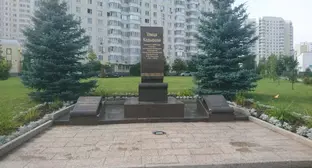29 June 2015, 09:00
Week in the Caucasus: review of main events of June 22-28
Heavy rains that led to flooding of houses in Sochi and other settlements of the Krasnodar Territory, Karachay-Cherkessia and Abkhazia; protests against increase of electricity tariff in Armenia; statement of the "Islamic State" about establishment of its branch in Northern Caucasus; end of the First European Games in Baku; decision of Russian Supreme Court on the murder of Anna Politkovskaya; sentencing of Dzhokhar Tsarnaev for terror act in Boston, – see the review of these and other events in the Caucasus during the week of June 22-28, 2015, prepared by the "Caucasian Knot".
Downpours resulting in flooding of houses in Krasnodar Territory, Karachay-Cherkessia and Abkhazia
Last week, the KrasnodarTerritory was affected by heavy rains. In a number of villages of the Mosty and Labinsk Districts, after hailstorms, houses were flooded or damaged; in Krasnodar, over 130 power substations failed. On June 25, Sochiwas affected by flooding, after which 33 persons turned for medical care – 13 of them were hospitalized. One person was found dead. In total, in Sochi, over 560 houses were flooded; and 279 people were evacuated. It was reported that two private houses were washed away into the river. One reason for the flooding was that the rainfall drainage system failed to cope with the flooding; locals also blamed the builders of Olympic venues. The territorial authorities promise to compensate the suffered damage to all the victims.
Also, strong showers caused the introduction on June 26 of the state of emergency in the Zelenchuk and Urup Districts of Karachay-Cherkessia, where dwelling settlements were flooded; and one person perished in the calamity.
On June 25, heavy rains affected the villages of Tsandripsh and Gyachrypsh of the Gagra District of Abkhazia. Here, the number of damaged houses exceeded 500. Also, 40 hectares of crops occurred under water.
Actions against increase of electricity tariff in Armenia become wide-scaled
After the June 17 decision of the Commission for Regulating Public Services (CRPS) of Armeniato increase the electricity tariff, starting from August 1, by 6.93 drams per 1 kW/h, a series of protest actions were held in the country. One of them, held in Yerevan at night on June 23, was dispersed by the police; and over 200 protesters were detained, but later released. After that, protesters and the police concluded an agreement on non-use of force; and protesters are now holding their action around the clock. The number of protesters is about 10,000; and they are supported by residents of other cities of the country. The protests are organized by the civil movement "No to robbery!" that mainly comprises young people and is not associated with any political and social forces. They emphasize that they have only one demand – to cancel the decision to raise the electricity tariff. Political analysts see the main result of the protests in Armenia in the emergence of a new political power, consisting of active and educated young people.
The authorities have heard the protesters. On June 27, the Armenian presidential administration issued a statement saying that the company "Electric Grids of Armenia" would be audited; and until the end of the audit "the government takes over the whole burden of the tariff increase." The protesters have stated their intention to continue the action until the decision to increase the tariff is cancelled.
It is noteworthy that in the context of protests in Armenia, information appeared about the transfer of the criminal case about the murder of the Avetisyan family in Gyumri, which had also caused strong public resonance, to the jurisdiction of the Armenian party. This was announced during the meeting on June 26 of the Armenian President Serzh Sargsyan with the Russian delegation headed by Maxim Sokolov, the Minister of Transports of Russia and a co-chair of the Armenian-Russian intergovernmental commission.
"Islamic State" announces creation of its branch in Northern Caucasus
Last week, information appeared that militants of four vilayets of "Imarat Kavkaz", recognized as a terrorist organization, swore their allegiance to the leader of the "Islamic State" (IS) (earlier – ISIL – Islamic State of Iraq and the Levant) Abu Bakr al-Baghdadi. The IS, whose activities are also prohibited in Russia and in a number of other countries, accepted the militants' oath, and appointed Abu Mukhammad (Rustam Asilderov) the head of its branch in the region. However, the information about the creation of the IS' branch in Northern Caucasus has not yet caused any reaction of the leaders of local militants Mukhammad Suleimanov, Zalim Shebzukhov and Aslambek Vadalov.
The "Imarat Kavkaz" is in deep crisis and was unable to oppose the "Islamic State" in the fight for influence in Northern Caucasus; while the anonymous call on Muslims to swear to the IS is aimed at the radical Muslim youth, believe the experts who commented the oath brought by Caucasian militants to the IS leader. In the opinion of Alexander Cherkasov, the IS becomes an attractive and promoted project; according to Akhmet Yarlykapov, it is an IS' propaganda record. The underground in Northern Caucasus is busy with problems of their own survival, said Orkhan Djemal.
First European Games are over in Baku
The First European Games, launched on June 12 inBaku, ended on June 28 with the closing ceremony, which was watched by 68,000 spectators. In the medal count, Russia is the winner; its athletes won a total of 164 medals, including 79 gold, 40 silver and 45 bronze ones. The second place with 56 medals (21, 15 and 20 medals, accordingly) went to Azerbaijan. The third place with 47 medals (19, 10 and 18) was won by the United Kingdom. Patrick Hickey, the President of the European Olympic Committee (EOC), expressed his satisfaction with the competitions in Baku, noting that there were no complaints from sports delegations. In Mr Hickey's view, Azerbaijan "has demonstrated its ability to hold Summer Olympic Games."
The European Games took place against the background of international criticism of the human rights situation in Azerbaijan. And on the eve of the closing ceremony, the Amnesty International stated that Azerbaijani authorities should immediately release all the imprisoned critics of the government, if they want to have a positive legacy left by the First European Games.
Conviction for Politkovskaya's murder upheld
On June 26, the Russia's Supreme Court rejected the appeals against the sentence passed on the murder case of Anna Politkovskaya, an observer of the "Novaya Gazeta" newspaper, but excluded an episode of the arms transfer from the verdict and decreased the prison term of the convict Djabrail Makhmudov from 14 years down to 13 years and 8 months. Thus, the verdict of the Moscow City Court of 9 June 2014 in respect of four natives of Chechnya Lom-Ali Gaitukaev, Rustam, Ibragim and Djabrail Makhmudov, and a former police officer Sergey Khadjikurbanov was upheld. Their advocates have already stated that they would seek a complete abolition of the verdict and were preparing an appeal to the European Court of Human Rights (ECtHR).
Tsarnaev apologized at announcing verdict on terror act in Boston
On June 25, the Boston Judge George O'Toole announced the death sentence to the ethnic Chechen Dzhokhar Tsarnaev, who was accused of committing the terror act at the Boston Marathon, and who was sentenced on May 15 by a jury in the United States to capital punishment. Tsarnaev apologized at the trial for his actions. He said that he regretted about "the harm that was caused by his actions, and prayed for the dead." After the sentencing, Dzhokhar Tsarnaev was transferred to the maximum security prison of the city of Florence, state of Colorado. It is already known that the death penalty will be carried out in the prison in the city of Terre Haute, state of Indiana.
Week in the Caucasus: review of main events of June 15-21, Week in the Caucasus: review of main events of June 8-14, Week in the Caucasus: review of main events of June 1-7.




